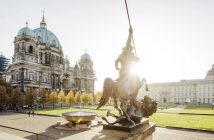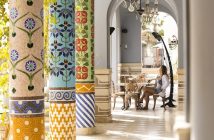I’m sitting in the Super Class of the TurboJet feeling slightly seasick as I try to figure out why the first class compartment smells like an onion bhaji and how much more lurching my rickety sea legs can withstand before my keyboard plays host to last night’s dim sum. As I’m cruising through the South China Sea, I close my eyes and think of all things good. Billy Joel. Fondant fancies. The way Scarlett O’Hara cocks her eyebrow in Gone with the Wind. Luckily, my limited imagination only needs to occupy me for the next 50 minutes, which is when I’ll arrive to my port of call (literally), Macau.
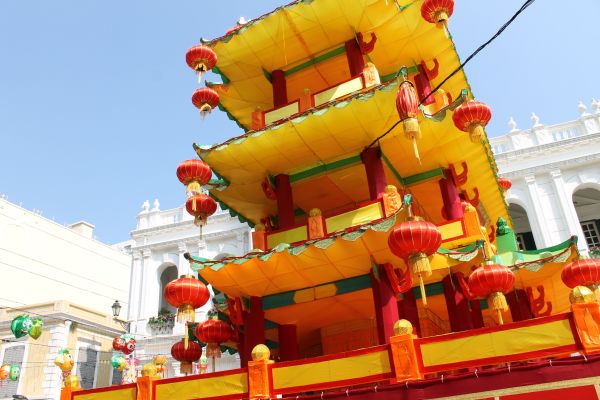
A former Portuguese colonial outpost an hour from Hong Kong, Macau is China’s only gambling destination. Whilst the pursuit has been outlawed on the mainland since the Communist party took power in 1949, the Chinese are a nation of inveterate gamblers. Here high-risk bets are cushioned with a healthy dose of superstition and more often than not a hand in the public coffers; so it’s unsurprising that the vessel I’m travelling on is packed. As a somewhat incongruous visitor to the aptly named Pearl River Estuary, I haven’t come to seek my fortune and leave with a suitcase full of Patacas. Me and Lady Luck have never been on good terms and when I invariably lose, Lady Solace doesn’t much like me either; so much for female solidarity.
The city is simply another lily pad on my oriental odyssey, but I’ve heard enough cautionary tales to leave my heart slightly aflutter at the prospect of five nights here. There’s something forlorn about the new Macau. Once cheerful confection-coloured buildings sit faded against a slate sky blemished with glossy skyscrapers. I’ve never read a Gabriel García Márquez novel, but decide that there’s something very ‘Love in the Time of Cholera’ in this bleached colonial splendour. The title of the book has always captivated me, to the point where I refuse to read it having entirely written it in my head. Today it is set in Macau to the soundtrack of Cantonese spliced with the reedy murmur of Portuguese cicadas. There are signs with ‘Los’ this and ‘Las’ that adorning enterprises from butcher to baker to candlestick maker, but beyond my rudimentary “pass the peri-peri” Portuguese, I’ve no clue what any of them mean.
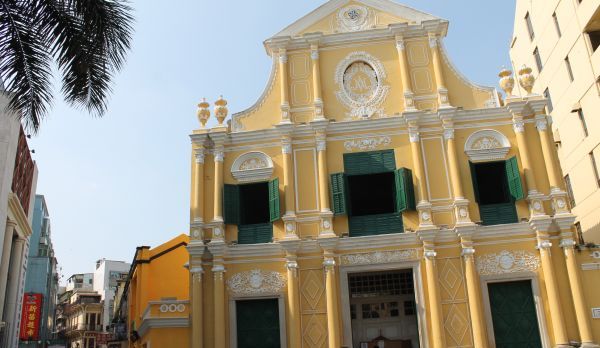
However, much like the signs, this Mediterranean tapestry is slowly fading. The colours are now watery, having somehow seeped into the neon casinos, which beckon in their phosphorescent mirage of infinite possibility. Casino capitalism has cast a quaint transformative glow over the once venerable cathedrals and baroque architecture, today syrupy tourist traps or decaying ruins. Those who profit would say it’s a small price to pay in a city whose gross gambling revenues dwarf those of Vegas five times or when $600 billion dollars was wagered in Macau in 2010, nearly double the gross national income of Austria.
The Venetian Macau is the world’s largest casino comprised of 10.5 million square feet of pure ostentatious seduction and in your face opulence with more marble and gold leaf than a Gadaffi residence. The replica Venetian canal manned by serenading Asian gondoliers overwhelms even my Benthamite soul and my eyes start to water uncontrollably through the thick smog of tobacco.
Strangely, I feel like the only Westerner in this place, a cursory glance around reveals that I probably am. This is possibly why I end up ushered down a labyrinth of corridors to a high stakes game in a private room. Allow me to shatter your Casino Royale illusion of a woman in a slinky backless dress and dapper gents in tuxedos. This stage is not solemn and its players aren’t suave or faintly glossy. It is a wild shrieking chicken fight of a scene, although admittedly I’m still getting used to the vociferant tones of Cantonese. Only one person at the table of Beijing officials and shadowy smokers speaks English.
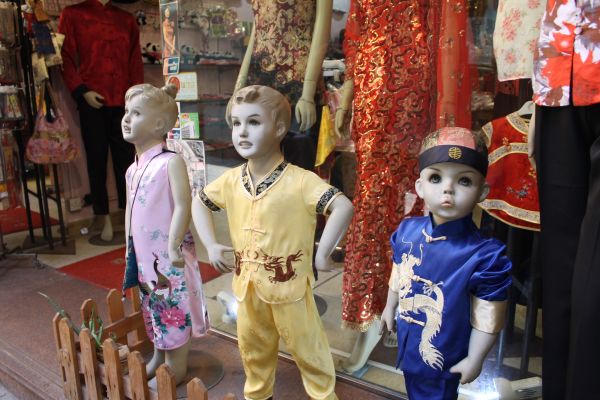
Mr Wu is a regular at The Venetian. He has the good-natured twinkle of team mascot with a caricatured roundness to his person. We talk gaming and Macau. He tries to explain what he can in his phonetic English; elaborate hand gestures do the rest. Mr Wu tells me that he loves to gamble. He flies into Macau every two weeks and his poison is the slot machines. He gets several machines at a time and bets $1000 US Dollars per spin; the machines spin every four seconds. As he talks about his big wins I can’t help but notice the dollar signs in his glazed eyes. Mr Wu is now trying to explain what he does for a living. He can’t think of the word and we are back to hand gestures. There are pointing fingers and some thumping. I tell him that I understood him perfectly. The man is in construction, probably drilling. The game ends and I’ve watched enough mob movies to make a speedy exit. Any one of these fellas could be a cheesed off card shark or general baddy and I decide that on this occasion being buried in cement is an adventure too far.
Back at the hotel I get chatting to the manager. Turns out Mr Wu, local legend and lothario isn’t in construction after all. He is the condom king of China. I should have known; no one makes that face when they’re drilling.
The days slink by with a strange slippery magic of Ed Marlo and a pack of cards. I don’t return to the casino, preferring to wander the city meeting other misfits lured here by wanderlust or a roll of the dice. We lunch in the quaint Chino-Portuguese cafes all serving the local delicacy of crumbly almond cookies and egg custard tarts. The afternoons are silent affairs involving big heavy books and perspiring icy drinks; away from the casinos and vice not much happens here, we are suspended in time without action. Such hazy stretches kindle utopian fantasies, a distorted sense of your own tiny importance and grand half-baked ideas.
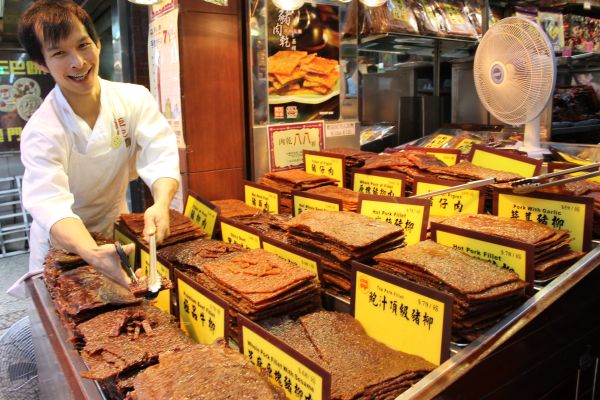
From the boat I watch the banyan trees disappear into the horizon and finger the chip in my pocket that I kept as a memento. I think about the people I met; all losers. None of us left the baccarat table any richer, but what we squandered in bills we found in abstract sangria-fuelled enlightenment. Gambling is the ultimate act of faith where each loss only strengthens your initial hope and in Macau it’s in the air, even if you don’t play it rubs off on you, making believers out of heretics. As I was leaving, Jane, an elderly American with the Southern twang of someone raised below the Mason-Dixon, tells me the secret of her success: according to Chinese superstition behind every gaming table is a baby ghost, so she always carries sugar cubes with her to feed the ghost and help her win.


